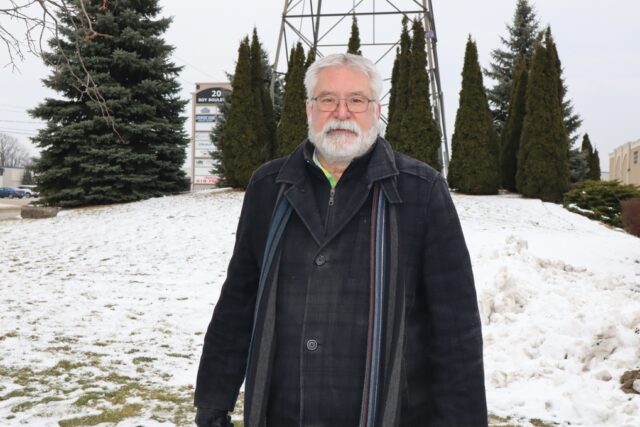Dave Levac, Ontario’s longest-serving Speaker of the Legislative Assembly and a former Liberal MPP for Brant, has seen the shifting tides of politics from the inside. In a reflective and candid conversation with BrantBlog, Levac spoke about the challenges of modern political discourse, the role of leadership in fostering collaboration, and the pressing issues facing communities like Brantford.
Levac, who retired in 2018 after 19 years in office, was direct in his assessment of Prime Minister Justin Trudeau’s recent resignation.
“It was inevitable,” he said. “Even if he stayed, the discourse wouldn’t have improved—it would have gotten worse. He likely recognized that his time was up, and now the party has a chance to redefine itself.”
For Levac, Trudeau’s departure is a symptom of a broader problem: the growing toxicity in Canadian politics.
“I’ve always been concerned about the way political discourse has evolved,” he said. “There was a time when you could fiercely debate someone on the floor of the legislature and then grab a coffee afterward. That’s no longer the norm. Now, the system rewards division, personal attacks, and negativity. It’s a disservice to the public.”
Levac, a Brantford native and former teacher, reflected on how political strategy has become increasingly calculated. “There’s a science to being in opposition and a science to being in government,” he said.
“Unfortunately, that science often prioritizes tearing others down rather than finding solutions. It creates an environment where compromise feels like a weakness instead of a strength.”
When asked about Brantford’s role in shaping broader provincial and national conversations, Levac emphasized the city’s potential as a model of cooperation.
“Municipalities are where the rubber meets the road,” he said. “They deliver person-to-person services that the provincial and federal governments don’t. But for municipalities to succeed, all three levels of government must work together. It’s happened in times of crisis, like recessions, but why can’t it happen consistently?”
Levac pointed to specific challenges facing Brantford, including housing, drug addiction, and mental health.
“These issues aren’t just stats—they’re people’s lives,” he said. “When someone dies of a drug overdose, it affects the entire community. A caring community doesn’t look away; it works together to provide housing, treatment, and support. These aren’t just municipal problems—they require collaboration at every level of government.”
Despite the challenges, Levac remained optimistic about Brantford’s ability to lead by example.
“Communities that succeed do so by learning from others, embracing new ideas, and working collaboratively,” he said. “If we approach these issues with honesty, transparency, and a willingness to compromise, we can create a better future.”
Levac also shared his thoughts on the qualities that define true leadership. “Leadership isn’t about following the crowd or sticking rigidly to party lines,” he said.
“It’s about having the courage to say no when necessary and the humility to listen to different perspectives. It’s about compromise and innovation—finding ways to adapt old ideas to new challenges.”
A recurring theme in Levac’s reflections was the role of communication and engagement. He voiced concerns about how social media has transformed public discourse.
“Social media can be a powerful tool for good, but too often it’s used to spread negativity,” he said. “We see people rally together to support a neighbor in need, which is wonderful. But we also see vile, personal attacks that discourage good people from participating in politics. It’s toxic, and it needs to change.”
Levac sees Brantford as a microcosm of the challenges and opportunities facing Canada. “This city has a history of resilience and innovation,” he said.
“It can serve as a model for how communities across the country can tackle their issues—not through division, but through unity and collaboration.”
As the conversation wound down, Levac emphasized the importance of listening and critical thinking in political decision-making.
“The best results often come from honest dialogue and compromise,” he said. “If we can foster that kind of culture—in Brantford and across Canada—we’ll be better equipped to face the challenges ahead.”
For Levac, the message is clear: politics should be about building bridges, not walls. “At the end of the day, we’re all trying to create a better future,” he said. “The more we work together, the closer we get to that goal.”




































Despite his optimism about brantford’s potential to be a role model, action by this City Council to explore ways to “annex” the County hardy seems like leadership. He is right that cities need to learn and innovate solutions to their challenges. That requires active engagement of city staff and citizens in the process, something this city seems unwilling to do.